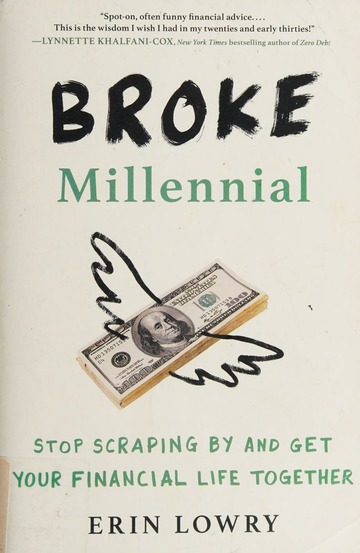Currently Empty: UGX 0

Erin Lowry brings out the key aspects of Broke Millennial and advises on how to stop scraping by and get your financial life together.
Let’s get started
Understanding the Money Mindset
Many Millennials in their 20s and early 30s experience money as stressful, confusing, and intimidating. This fear can prevent them from taking control of their finances and lead to financial frustration or even missed opportunities for growth. A crucial step toward financial health involves recognizing childhood influences and hidden roadblocks—such as family attitudes toward money—that shape current behaviors. Reflecting on early money memories can reveal fears of scarcity or helplessness, which are important to address for future progress.
Building a Healthy Relationship with Money
Erin emphasizes that managing finances isn’t rocket science but requires changing behavior rooted in emotional and subconscious patterns. Consistent small steps—like automating savings or switching to online banking—can lead to significant improvements over time. The goal is to prevent feelings of shame or overwhelm and instead approach money management with curiosity and patience.
Budgeting Approaches
There are two primary methods:
- Cash Diet: Moving transactions from credit/debit cards to cash to limit overspending and avoid fees or interest. Dividing monthly budgets into weekly cash allotments encourages mindful spending.
- Tracking Every Penny: Recording every expense in detail through spreadsheets provides insight into spending habits, revealing areas for adjustment. For example, realizing that frequent Starbucks purchases can be replaced with refillable bottles to save money.
Creating Realistic Budget Percentages
Budgeting by percentages—allocating a specific proportion of income to fixed costs, savings, and flexible spending—is effective but should be tailored to individual circumstances. Generally, 50% of net income should go toward essential expenses, 20% toward savings, and 30% for variable costs. However, for Millennials in expensive cities, flexibility is necessary, prioritizing necessities like rent while gradually increasing savings as income grows.
Using Banks and Saving Strategies
Switching to online banks can significantly improve interest earnings because they typically offer higher APYs due to lower operating costs. Saving money is crucial to avoid debt traps: starting small ($10 per paycheck) helps establish the habit. Automating transfers makes savings effortless and sustainable. Building an emergency fund, ideally covering six months of expenses, provides security—though starting with $1,000 or enough to cover essential costs is a practical goal, especially for those with debt or irregular income.
The Power of Paying Yourself First
Prioritizing savings before covering expenses ensures financial resilience. Even small contributions—like skipping a coffee—add up over time. Automating savings through HR or bank transfers reduces temptation to skip or forget, gradually building a robust financial cushion.
Emergency Fund
An emergency fund is vital for weathering unexpected costs—medical emergencies, job loss, or urgent repairs. The recommended size is six months of living expenses; however, beginners or those in debt should aim for at least $1,000. Freelancers or self-employed individuals should aim for nine months due to income variability. Store these savings in a high-yield savings account, separate from investments, to preserve liquidity and peace of mind.
Final Takeaways
Small, consistent actions—budgeting wisely, saving automatically, and managing debt—can profoundly improve financial stability.
Recognize and confront childhood money patterns to break free from financial stress.
Use simple strategies like cash budgeting, online accounts, nurture responsible money habits, and emergency funds to build confidence and control.
Action Tips
Set boundaries during social expenses, such as split bills or choosing modest options, to stick to your budget without feeling guilty.
Practice patience; financial change takes time, but small daily habits compound into long-term success.



